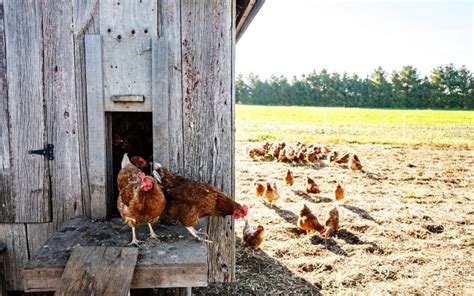Feeding your chickens a diverse and nutritious diet is essential for their health and well-being. While layer feed provides the bulk of their nutritional needs, adding fruits and vegetables as treats can be a great way to keep them happy and healthy. Cantaloupe is a popular choice among chicken owners due to its sweetness and high water content, making it a refreshing snack for hot summer days. However, it's crucial to feed cantaloupe to your chickens safely to avoid any potential health issues.
Benefits of Feeding Cantaloupe to Chickens
Cantaloupe is a nutrient-rich fruit that provides several benefits for chickens. It's an excellent source of vitamins A and C, potassium, and fiber, which can help support healthy digestion, immune function, and overall well-being. Cantaloupe also contains antioxidants and anti-inflammatory compounds that can help protect against diseases and promote healthy growth.
Risks Associated with Feeding Cantaloupe to Chickens
While cantaloupe can be a healthy treat for chickens, there are some risks to consider. The most significant concern is the potential for choking hazards, as cantaloupe seeds and rinds can be a problem for chickens to swallow. Additionally, overfeeding cantaloupe can lead to an imbalance of nutrients in their diet, causing digestive issues and other health problems.
5 Ways to Feed Cantaloupe to Your Chickens Safely
To ensure your chickens enjoy the benefits of cantaloupe while minimizing the risks, follow these 5 ways to feed cantaloupe safely:
1. Remove Seeds and Rinds

The first step to feeding cantaloupe safely is to remove the seeds and rinds. These can be a choking hazard for chickens, and the rinds can be difficult for them to digest. Simply cut the cantaloupe in half, scoop out the seeds, and chop the flesh into small pieces.
2. Chop into Small Pieces

Once you've removed the seeds and rinds, chop the cantaloupe flesh into small pieces. This will help prevent choking hazards and make it easier for your chickens to swallow. Aim for pieces that are about 1-2 inches in size.
3. Offer in Moderation

While cantaloupe can be a healthy treat for chickens, it's essential to offer it in moderation. Overfeeding can lead to digestive issues, so limit the amount of cantaloupe you give your chickens to about 1-2 cups per 10 birds per day.
4. Mix with Other Treats

To ensure your chickens receive a balanced diet, mix cantaloupe with other treats. This can include fruits, vegetables, grains, and proteins. Aim for a mix of 50-75% layer feed and 25-50% treats.
5. Provide Fresh Water

Finally, ensure your chickens always have access to fresh water. Cantaloupe is high in water content, but it's still essential to provide a clean, reliable source of water to keep your chickens hydrated and healthy.
Gallery of Chicken-Friendly Fruits and Vegetables






Frequently Asked Questions
Can I feed my chickens cantaloupe rinds?
+No, it's not recommended to feed your chickens cantaloupe rinds. The rinds can be difficult for chickens to digest and may cause digestive issues.
How often can I feed my chickens cantaloupe?
+It's recommended to feed your chickens cantaloupe in moderation, about 1-2 cups per 10 birds per day. Overfeeding can lead to digestive issues and other health problems.
Can I feed my chickens other types of melons?
+Yes, other types of melons like watermelon and honeydew can be a healthy treat for chickens. However, be sure to remove the seeds and rinds and chop the flesh into small pieces to prevent choking hazards.
By following these 5 ways to feed cantaloupe to your chickens safely, you can provide them with a nutritious and delicious treat that promotes healthy growth and well-being. Remember to always prioritize your chickens' health and safety by removing seeds and rinds, chopping the flesh into small pieces, offering in moderation, mixing with other treats, and providing fresh water.
